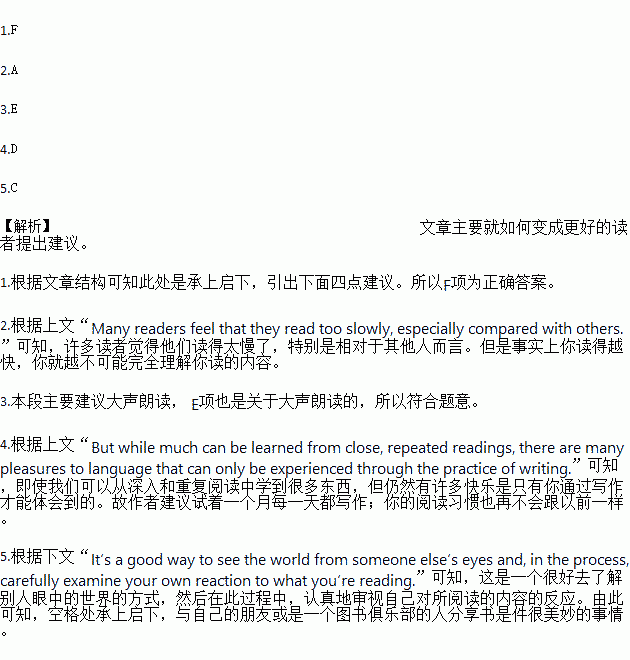题目内容
How to become a better reader
Language and literacy(读写能力) are among humans’ greatest inventions. Evolving(演变) over the course of human history, languages are a reflection of our cultural and societal attitudes. Today, surrounded(包围) by social media, television, movies, and, of course, books, the ability to read and write is important to expressing one’s feelings. Most humans acquire language in early childhood and speak fluently when they are about three years old, but our continued relationship with language gives shape and meaning to our lives. 1.
(1) Take it slow. Many readers feel that they read too slowly, especially compared with others. 2. The best readers are flexible(灵活的) — slowing down when needed — and always have a dictionary at hand.
(2) Read aloud. When humans first began reading written words, it was unusual to read in silence. 3. Try listening to the author reading their own work — you’ll be surprised to find how clearly it comes through on the page.
(3) Write. Writing and reading go hand-in-hand: how and what you read affects how and what you write, and the best readers often make the best writers. But while much can be learned from close, repeated readings, there are many pleasures to language that can only be experienced through the practice of writing. 4.
(4) Tell your friends. All of the literature is essentially communication from an individual’s inner voice to an audience. 5. It’s a good way to see the world from someone else’s eyes and, in the process, carefully examine your own reaction to what you’re reading.
A. But the truth is that the faster you read, the less likely you are to understand fully what you’re reading.
B. Can you remember the first piece of writing that transported you to another world?
C. There is something magical about sharing books with friends or a book club.
D. Try writing every day for a month, and you will never read the same again.
E. Reading out loud is one of the best ways to improve your reading ability.
F. Here are 4 ways to become a better reader.
G. In no time, you’ll be appreciating novels like fine wine.

